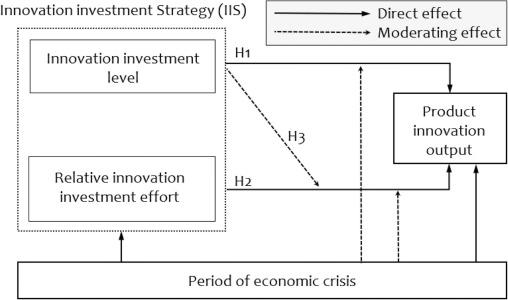In today’s ever-evolving financial landscape, the traditional notions of wealth creation are being redefined, with real estate emerging as a cornerstone for modern investors. As a tangible asset, real estate offers not only stability but also diverse avenues for growth in an increasingly complex market. The time-honored strategies of buying, holding, and selling properties are being complemented by innovative approaches that leverage technology, streamline operations, and tap into new trends. This article delves into the multifaceted world of real estate investment, exploring fresh perspectives that empower individuals to unlock wealth and embrace opportunities previously unimagined. From the dynamic allure of rental properties to the strategic potential of real estate investment trusts (REITs), we will uncover pathways that cater to both seasoned investors and newcomers alike, highlighting how to navigate this modern era of investment with confidence.
Exploring Innovative Investment Strategies in Real Estate
In today’s dynamic market, innovative investment strategies are crucial for unlocking wealth within the realm of real estate. Leveraging technology, many investors are now utilizing property management software that streamlines operations, reduces costs, and improves tenant communication. Additionally, the emergence of real estate crowdfunding platforms allows individuals to pool resources and invest in properties that may have previously been unattainable. This collective approach not only democratizes investment opportunities but also mitigates risk through diversification.
Moreover, exploring niche markets, such as motel investments or short-term rentals, can provide unique advantages for savvy investors. The motel sector, in particular, offers a self-sustaining model that combines real estate with hospitality, often yielding substantial returns. Similarly, tapping into the growing demand for vacation rentals can generate lucrative income streams. Consider developing your investment portfolio by embracing these modern strategies:
- Technology Integration: Utilize apps for efficient property management.
- Crowdfunding: Join forces with other investors for shared opportunities.
- Niche Markets: Invest in short-term and motel properties for diverse income.

Harnessing Technology for Smarter Property Management
In today’s fast-paced real estate market, leveraging technology is essential for effective property management. Advanced tools can streamline operations, enhance communication, and ultimately drive better investment outcomes. Property managers can utilize software solutions that automate routine tasks such as maintenance requests, tenant communications, and rent collection. This leads to increased efficiency and allows managers to focus on strategic growth rather than day-to-day operations. Key benefits of technology integration include:
- Real-time data analysis: Monitor property performance and tenant behavior effectively.
- Mobile accessibility: Manage properties anytime, anywhere, enhancing responsiveness.
- Enhanced tenant experience: Implement user-friendly platforms for seamless communication.
- Cost savings: Reduce overhead through automation and digital tools.
Additionally, implementing smart home technology not only attracts a tech-savvy clientele but also boosts property value. Features like smart thermostats, security systems, and energy-efficient appliances appeal to today’s renters by promoting sustainability and convenience. Integrating these technologies helps property owners stay competitive and meet the evolving expectations of tenants. Investing in such innovations can lead to long-term gains, fostering environments that nurture both tenant satisfaction and investor profitability.
| Smart Technology | Benefits | Value Addition |
|---|---|---|
| Smart Thermostats | Energy savings | Lower utility costs |
| Security Systems | Enhanced safety | Attracts potential tenants |
| Smart Appliances | Convenience in usage | Increased desirability |
Analyzing Market Trends to Identify Profitable Opportunities
To successfully navigate the real estate landscape, investors must keep a keen eye on emerging market trends. Data analytics and market reports are essential tools that can unveil significant shifts in consumer demand and property values. Analyzing these trends involves looking at various indicators such as urbanization rates, employment statistics, and demographic patterns. By focusing on these aspects, investors can uncover profitable opportunities in markets that are poised for growth. For instance:
- Population Dynamics: Shifts towards urban living can signal high demand areas for residential properties.
- Job Growth: Locations with increasing job opportunities often experience rapid real estate appreciation.
- Interest Rates: Monitoring interest rate changes can provide insights into financing options and buyer confidence.
Another critical factor is identifying underutilized or emerging neighborhoods that show potential for revitalization. Researching local developments and government initiatives aimed at infrastructure improvement can provide deeper insights into where to invest. Utilizing tools such as heat maps to visualize property trends or engaging with local real estate groups can also enhance one’s understanding of prospective areas. Here’s a simple table illustrating potential indicators:
| Indicator | Significance | Actionable Insight |
|---|---|---|
| Population Growth | Higher demand for housing | Invest in residential properties |
| Economic Development | Increased property values | Target commercial real estate |
| Infrastructure Projects | Improved accessibility | Look for investment in emerging areas |
Building a Sustainable Portfolio for Long-Term Success
To cultivate a resilient investment portfolio, focus on integrating sustainable practices that promise both economic returns and environmental benefits. Begin by considering the location of your properties, targeting areas with sustainable development plans that emphasize public transport, green spaces, and eco-friendly infrastructure. By investing in energy-efficient homes equipped with renewable technologies, you can reduce operational costs and attract tenants who prioritize sustainability. This approach not only enhances the property value but also assures compliance with increasing regulations regarding environmental standards.
Implementing a diversified strategy across various sustainable real estate assets is essential. Look into the following types of investments to create a balanced portfolio:
- Residential Green Buildings: Properties with sustainable materials and energy-efficient systems.
- Commercial Spaces: Eco-conscious office buildings that attract businesses focused on corporate social responsibility.
- Renewable Energy Projects: Collaborations in solar or wind farms that complement property investments.
By adopting a multi-faceted approach, investors not only contribute to a better planet but also secure financial pathways that evolve with changing market demands, creating a sustainable legacy that withstands the test of time.
Wrapping Up
As we conclude our exploration of “Unlocking Wealth: A Modern Approach to Real Estate Investment,” it’s clear that embracing innovative strategies and adapting to market dynamics is essential for aspiring investors. The journey through real estate is not merely about transactions but about forging lasting connections and understanding the rhythm of the market. By staying informed and leveraging contemporary tools and insights, you can navigate this complex landscape with confidence. Remember, each investment is a step towards building a sustainable financial future, so continue to educate yourself and approach every opportunity with a blend of caution and enthusiasm. The doors to wealth are open; it’s your turn to step through.










